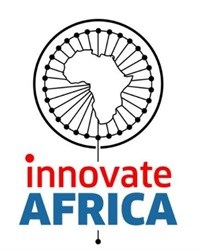$1m awarded to 22 African digital journalism, civic technology projects

The projects, which include both digital journalism and civic technology ideas, were selected by innovateAFRICA from 736 applications from 49 African countries. Proposals underwent an intensive two-month technical review process that concluded this week with a final evaluation of the 73 strongest ideas by an independent jury of international experts.
“The world is facing challenging political and socio-economic realities. We need the media and other civic watchdogs to provide the checks and balances needed to help us navigate an uncertain future. It has therefore been fantastic to see not just the superb quality and range of entries, but also the diversity of ideas and collaboration that innovateAFRICA has fostered across the region,” says juror and Omidyar Networks director of investments for Africa, Ory Okolloh.
The 22 innovateAFRICA projects will spend the next month refining their implementation plans and budgets, before receiving seed grants of $12,500 to $100,000 each, along with engineering support from Code for Africa’s civic technology labs across the continent. Projects will also benefit from business development and other strategic mentorship from global experts at the Media Development Investment Fund and Global Editors Network.
“We’ve selected some of the brightest innovators in this space to experiment with leapfrog technologies, but the real focus is to help teams build real-world solutions to real-world problems that can immediately be adopted and scaled by mainstream media companies and civil society,” explains innovateAFRICA founder, Justin Arenstein.
InnovateAFRICA is currently the largest fund for digital journalism experimentation in Africa, and is managed by Code for Africa, as part of the International Center for Journalists’ (ICFJ) wider data journalism initiative in Africa. Arenstein is an ICFJ Knight International Journalism Fellow.
While only 22 projects qualified for seed funding, innovateAFRICA will also help the other 51 shortlisted projects explore alternate funding, industry partnerships and community-driven collaboration. View the full list of the 22 grantees here.
Common themes
The winning projects target a number of common themes: from ways to use new technologies such as drones / sensors / satellites to produce real-time reporting in difficult-to-reach places, to new ways to harness artificial intelligence (AI) and web robots (bots) for improved news gathering and audience engagement. A number of projects will also strive to improve visual storytelling in Africa, combining cartoon illustrations with viral video techniques, along with data visualisations and immersive storytelling that includes 360° and virtual reality imagery.
“These projects represent exciting new approaches to tackling the challenges that face today’s media, both in Africa and around the world. The increasing threat of fake news is particularly troubling because it undermines the free flow of credible information that underpins modern societies,” says Jerri Eddings, a juror and senior program director at ICFJ. “We need innovative solutions to such problems, and it is heartening to see that innovateAFRICA has surfaced so many creative ideas for facing these challenges.”
Juror and publisher of Stuff magazine in South Africa, Toby Shapshak says “journalism is no longer just about reporting the news. It is an industry that has evolved as significantly as any other — from banking to taxi hire — and has as many challenges. Not least of these is how varied the ways are that people access their news, be it via mobile, radio or via the web. Just as varied are the many new fields journalism needs to report on, including newly opened government data. The advent of drones, data-journalism and mobile has fundamentally changed what journalists can do, and how citizen journalists can contribute.
"The winners this year represent a broad range of smart ways to solve all of these new challenges and new opportunities; and wonderfully demonstrate Africa’s renowned problem-solving reputation.”
InnovateAFRICA runs alongside a $500,000 companion fund, impactAFRICA, which makes story grants of up to $20,000 for journalists to get out into the field for pioneering digital reporting projects. ImpactAFRICA has just announced its second cohort of 13 grantees.
Both initiatives have partnered with CFI, the French agency for media cooperation, to boost involvement of digital pioneers across Francophone Africa through a series of digital journalism and civic technology workshops. Participants at the events, including similar d|bootcamps hosted by Hacks/Hackersin Anglophone Africa, received help to build project teams and to develop project ideas. Both organisations will continue to assist innovateAFRICA applicants in the coming months.
InnovateAFRICA’s partners include Omidyar Network, the Bill & Melinda Gates Foundation, the CFI, the John S. and James L. Knight Foundation, the Media Development Investment Fund (MDIF), the Global Editors’ Network (GEN) and the World Bank.














